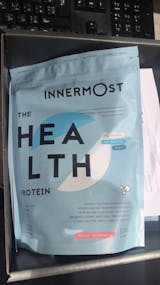Let's debunk the myths surrounding strength training and pave the way for a more inclusive and informed approach. From dispelling fears of bulking up to challenging the notion that strength supplements offer a shortcut, we unravel the truths that empower individuals to embrace the transformative benefits of building strength. Whether you're a seasoned enthusiast or a newcomer, understanding the reality behind these myths is the key to unlocking the full potential of strength training. It's time to break free from stereotypes, embrace the versatility of strength exercises, and step into a healthier and stronger lifestyle.
8 Strength Training Myths You Need to Stop Believing
1. Bulking Up:One common misconception about strength training is the fear of "bulking up." In reality, a well-rounded strength training program, when combined with a balanced diet, contributes to a lean and toned physique. Women, in particular, don't need to worry about becoming 'bulky' or overly muscular, as hormonal differences make it challenging to achieve a bulky appearance without specific training and nutrition protocols.
2. Strength Supplements Are a Shortcut:
While strength supplements can be beneficial, they are not a shortcut to success. Many people believe that these supplements alone can replace a well-rounded diet and consistent training. The truth is, supplements are meant to complement a solid foundation of nutritious food and proper exercise. It's essential to prioritise a healthy lifestyle over relying solely on shortcuts.
3. Cardio Is Superior for Fat Loss:
One prevalent myth is that cardiovascular exercise is the only effective way to lose fat, and strength training is only for building muscle. In reality, strength training can play a significant role in fat loss by increasing metabolic rate and promoting the development of lean muscle mass [1]. Combining both strength training and cardiovascular exercise creates a well-rounded fitness routine that maximises fat loss and overall health [2].
4. Strength Training Is Only for the Young People:
Some believe that strength training is exclusively for younger people and that older individuals should avoid it due to the risk of injury. However, strength training is particularly beneficial for older adults. It helps maintain bone density, improves joint health, and enhances overall functional fitness, promoting independence and a higher quality of life as individuals age [3] [4].
5. You Can Spot-Reduce Fat:
Many people believe that performing specific exercises targeting a particular body part will result in localised fat reduction. Unfortunately, spot reduction is a myth. Fat loss occurs systematically across the entire body through a combination of a calorie deficit and regular exercise [5]. While strength training can tone and define specific muscle groups, it does not selectively eliminate fat from those areas.
6. Heavy Weights Bulk, Light Weights Tone:
Another common misconception is that lifting heavy weights will lead to bulking up, while lifting lighter weights with higher repetitions will result in a toned physique. The reality is that both approaches have their place in a well-rounded strength training program. The key is to adjust the training variables, such as volume and intensity, based on individual goals, rather than relying on a one-size-fits-all approach.
7. Strength Training Is Time-Consuming:
Some people shy away from strength training because they believe it requires long, gruelling sessions in the gym. In truth, effective strength training can be achieved in relatively short periods. High-intensity, focused workouts that target key muscle groups can yield significant results in as little as 30 to 45 minutes. Quality and consistency are more important than quantity when it comes to strength training.
Let's set the record straight. You don't need a gym membership to embark on a powerful strength training journey. Effective strength training is not tethered to fancy equipment or elaborate setups, it's a versatile practice that can unfold anywhere – your living room, a local park, or even the garden. Bodyweight exercises, resistance bands, and creative use of everyday items are your tools to sculpting strength without the need for a gym.
To Weigh it Up:
By busting these common myths, we pave the way for a more inclusive and informed approach to strength training. Ultimately, it's an accessible practice that benefits individuals of all ages and fitness levels.Embrace the diversity of strength training exercises, tailor your approach to your specific goals, and enjoy the numerous physical and mental rewards that come with building strength. Remember, knowledge is power, and understanding the truth about strength training is the first step toward a healthier and stronger you.
[1] https://pure.bond.edu.au/ws/portalfiles/portal/36134364/AM_The_effect_of_exercise_interventions_on_resting_metabolic_rate.pdf
[2] https://pubmed.ncbi.nlm.nih.gov/34957791/
[3] https://www.ncbi.nlm.nih.gov/pmc/articles/PMC6279907/
[4] https://journals.sagepub.com/doi/10.1177/0269215515610039)
[5] https://www.termedia.pl/A-proposed-model-to-test-the-hypothesis-of-exerciseinduced-localized-fat-reduction-spot-reduction-including-a-systematic-review-with-meta-analysis,129,45538,0,1.html























